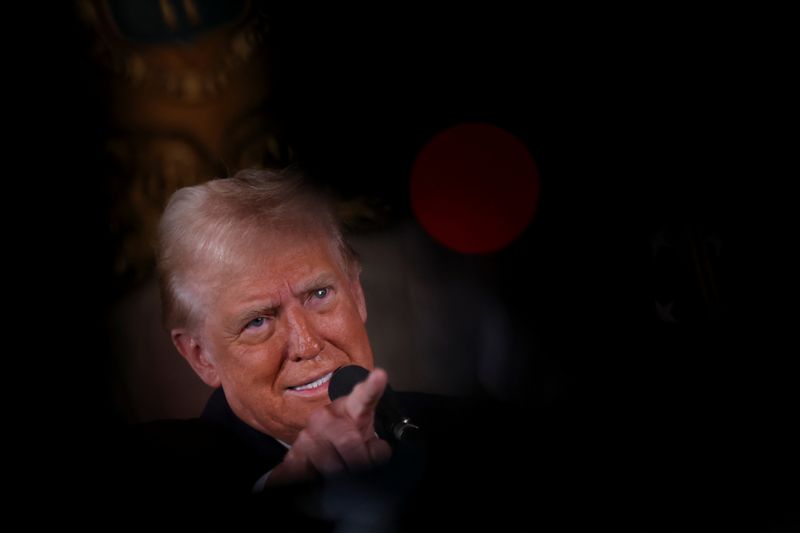By David Lawder and Shivani Tanna
(Reuters) -U.S. President-elect Donald Trump is considering declaring a national economic emergency to provide legal justification for a series of universal tariffs on allies and adversaries, CNN reported on Wednesday, citing unnamed sources familiar with the matter.
The move will allow Trump to build a new tariff program by using the International Economic Emergency Powers Act (IEEPA), which authorizes a president to manage imports during a national emergency, the report said.
"Nothing is off the table," a source familiar with the matter told CNN, acknowledging that a discussion had taken place over declaring a national emergency.
The Trump transition team did not immediately respond to a Reuters request for comment.
A national emergency declaration under IEEPA has long been considered as a key legal tool that Trump may invoke to take quick action on his campaign promise to impose a universal tariff of at least 10% on all imports into the U.S.
Three weeks after his election in November, Trump said on social media that immediately after his Jan. 20 inauguration, he would sign "all necessary documents" to begin charging Mexico and Canada 25% tariffs unless illegal immigration and fentanyl trafficking is halted.
Trade experts view that action as likely involving an IEEPA emergency declaration.
Trump invoked IEEPA in 2019 for a similar 5% tariff threat against Mexican imports over illegal immigration, which was withdrawn after Mexico agreed to tighten border security and hold migrants on its territory.
Trump, a Republican who imposed tariffs of up to 25% on some $370 billion worth of Chinese goods during his first term, has also vowed to impose new 60% tariffs on all Chinese imports. On Monday, Trump denied a media report that his team was exploring a scaling back of these plans to cover only critical imports due to concerns about inflation.
Trump used Section 301 of the Trade Act of 1974, an unfair trade practices statute, to back his past China tariffs and may return to that tool, trade lawyers say.

He also may invoke a national security trade law, Section 232 of the Trade Expansion Act of 1962, for further universal tariffs. Section 232 was used to back global U.S. tariffs of 25% on steel and 10% on aluminum.
The IEEPA statute is an updated version of the 1917 Trading with the Enemy Act, which the late President Richard Nixon invoked in 1971 to impose a 10% universal tariff to ease a balance of payments crisis and push Germany and Japan to strengthen the value their currencies against the dollar.